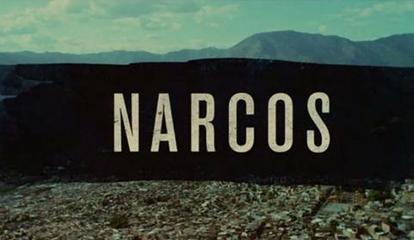If you’ve finished Narcos and are already experiencing withdrawal symptoms here’s 8 Drug War films you need to watch!

Yes, you might have finished Narcos already but there are plenty of great drug war films which more than stack up to the series. If you’ve seen all the eight films below and want more recommendations leave a comment or email me here. If you haven’t seen any of the films below or Narcos, you’ve got a lot of catching up to do! No time like the present.
8. Scarface
Scarface: the old classic. It’s full of recognizable quotes and has a hit performance from Al Pacino. There’s plenty of violence, hard drugs, and strong language.
7. Sicario
Sicario: the modern classic. It takes place on the streets of the once murder capital of the world, Juarez, Mexico. You’ll see a group of FBI agents sent to the border town to try and take down the dominant drug cartel. The last scene is a nail biter.
6. Miss Bala
Miss Bala is a brutal portrayal of the Mexican drug war. The film is loosely based on the true story of 2012’s Miss Sinaloa who was arrested with suspected cartel members. It’s definitely not a happy film.
5. Maria Full of Grace
This Colombian film is the ultimate film about the perils of drug smuggling. In fact the performance from actress Catalina Sandino Moreno is so eerily convincing she was nominated for an Oscar.
4. City of God
One of the best films made ever. City of God tells the story of Rocket and Lil Ze, one becomes a drug lord, the other becomes a photographer trying to make it amidst all the turf wars. The fast paced editing and narrative are exactly what you want following Narcos. And don’t trust this strange 90s-esque trailer.
3. El Infierno
Aha! Unless you’re a drug war film pro you’ve probably never heard of this film. And if you haven’t heard of it you are missing out. It’s the best drug-war comedy in existence. It satirises the narcos, the police, and the government, Luis Estrada (the director) holds everyone accountable. And, as an added bonus, the main character is played by Narcos Drug Lord Gilberto Orejuela.
2. Traffic
Traffic is the best American Drug War film. It has an incredible cast: Don Cheadle, Benicio del Toro, Michael Douglas, and Catherine Zeta-Jones. In addition, it’s broken into 3 storylines: one following a policeman in Mexico, another with DEA agents tracking a don, and another with the drug czar of the U.S. and his junkie daughter.
1. Elite Squad
Last but not least, here’s my favourite, the Brazilian Elite Squad. First thing you should notice is the main actor is the same guy that plays Pablo Escobar (yes Spanish is not his native language). Second you’ll notice that he’s on the other side – he’s playing a cop! It’s also directed by the same guy that directed Narcos. Three things which combine to make the ultimate substitute to Narcos! Plus the sequel is even better than the first!




You must be logged in to post a comment.